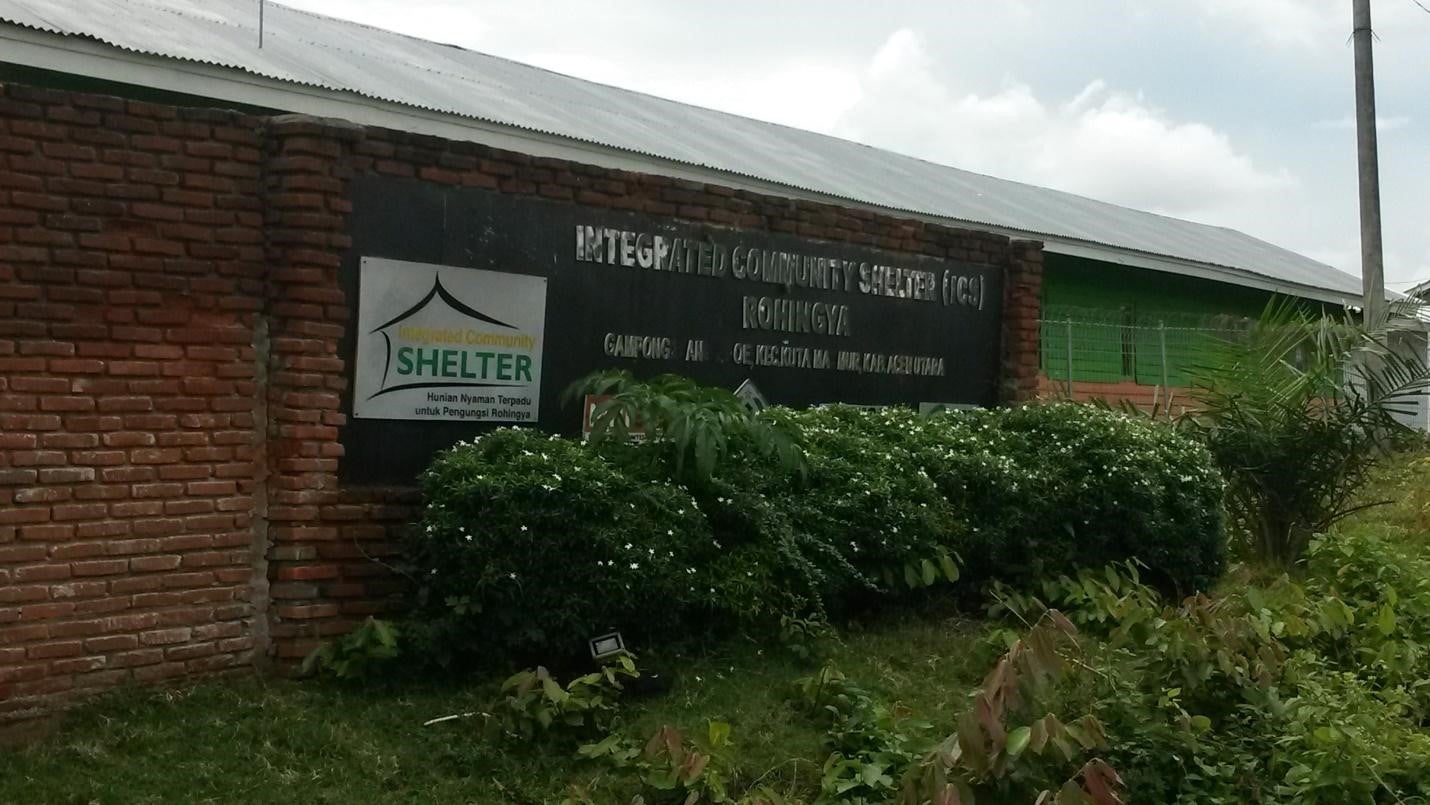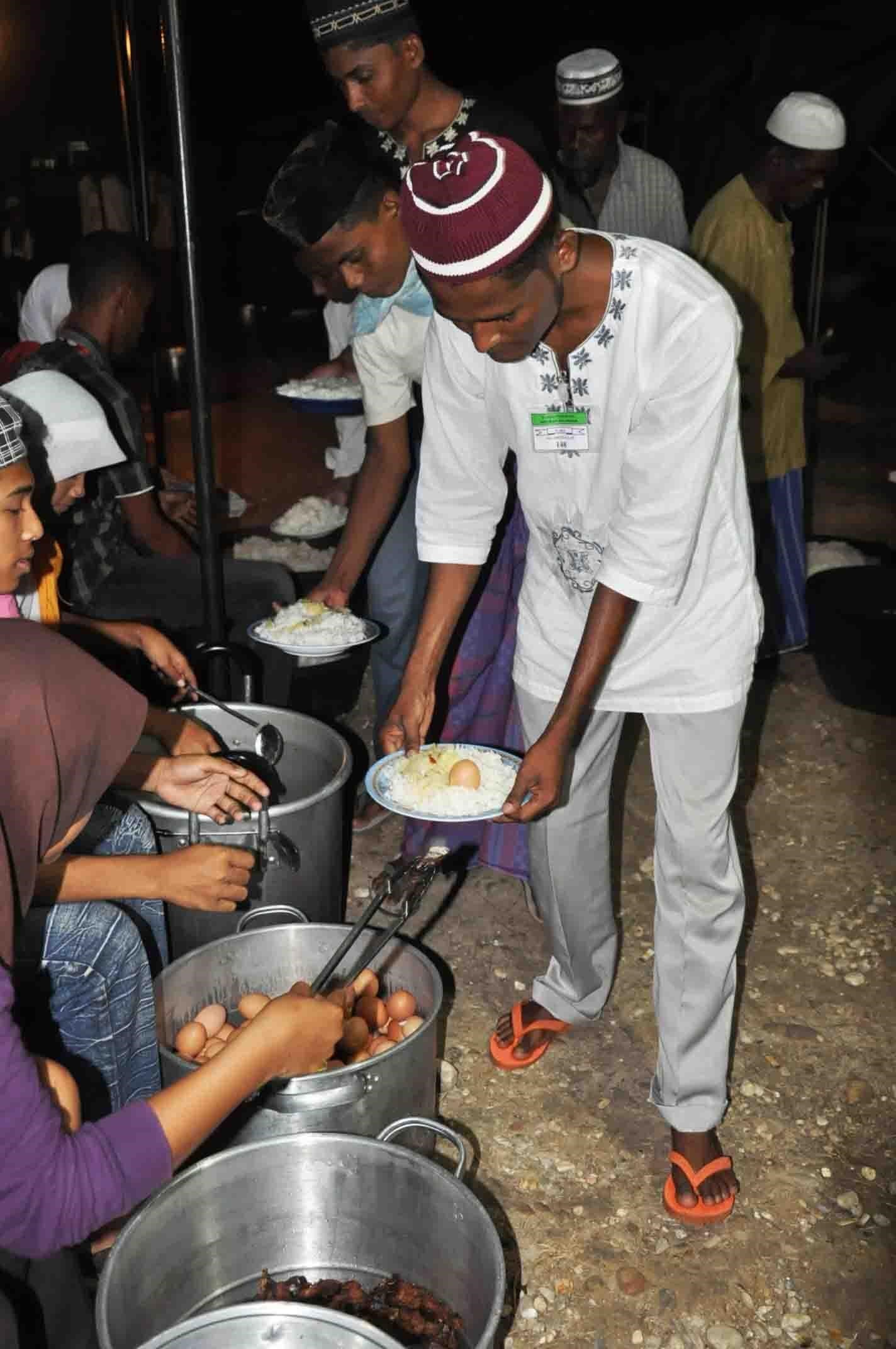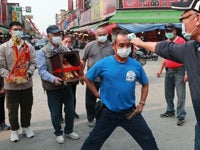Grassroots Religio-cultural Elements Protect Rohingya Refugees During Covid-19 in Aceh
contributed by Nia Deliana, 11 August 2020
Since the outbreak of Covid-19, numerous countries have tightened their sea border controls. In mid-April 2020, 382 Rohingya refugees in the maritime borders of Malaysia and Thailand were rejected entry because of concerns regarding the spread of Coronavirus.
Aceh, a region at the northern end of Sumatra, Indonesia, had seen numerous waves of these boats full of people stranded off its coastal areas since 2008. Despite the complicated initiatives from numerous government related parties, each of the arrivals had never failed in hospitality led by the Acehnese common folks. They were saved through preliminary aid such as food, clothes and the provision of temporary shelters initiated by traditional leadership.
The latest one of the boats which arrived on 24 June 2020 in North Aceh was carrying 94 people consisting of 15 men, 49 women and 30 children. It was only on 26 June 2020, after Acehnese people insisted on the local government of North Aceh taking charge and allocating treatment for them, that the local Regent released a statement that the government would fulfill their needs, treat the ills and provide measures for an appropriate response to Covid-19.
Bottom-Up Initiatives of Humanity
“We picked them up in our boats. Every fisherman here owns a boat. (We) should not be cruel to our Muslim brothers. We must help them first, before applying decisions based on immigration and international regulations”. This is a sentence said by a fisherman in Aceh to a prominent national newspaper (Regional Kompas). This statement was made after facing slow action from the local government. When a response was finally made, fixing the boat and returning refugees back into the sea was the first idea delivered through military personnel who represent the local government. The decision was welcomed with backlash and intense critiques from residents, netizens and human rights bodies who pleaded the local government to take more protective measures.

Rohingya Refugees on Friday prayer in former immigration office of Lhokseumawe, 2020 @Courtesy Muhammad Saddam
Perhaps to be seen as compromising with the ongoing pressure placed by the international human rights watch, the government is honoring refugees by carrying out Covid-19 rapid tests amongst the masses - which in a matter of hours declared all results negative. Therefore, on 26th June 2020, the military leader of the local government informed that the refugees, who had originally intended to reach Australia, will be provided a new boat for their journey. This sounds persuasive as since mid-May 2020, Australia and Indonesia were reported to engage in a resolution talk initiative towards aid for the Rohingyas, but no further updates have been announced so far.
The Indonesian government has generally been reluctant to share responsibility over the continuous influx of refugees as displayed from 2015 onwards. Due to the international pressure, through its provincial government of Aceh, measures to protect the Rohingyas were implemented. In 2015, the year where hundreds of Rohingyas drowned in the Andaman Sea while other hundreds successfully disembarked in North Aceh and received organized aids. Through numerous international and national human rights organizations, permanent infrastructures were allocated. The refugees were assisted with capacity building activities aimed for their survival once they found a permanent settlement destination. Unlike in a time of widespread pandemic nowadays, ensuring rights and safety of the refugees in the long term would prove to be a serious challenge for a mere province like Aceh.

Rohingya Shelter in Lhokseumawe, 2016 @Courtesy Mehmet Ozay
Covid-19 Problematic Response and Distrust
One perhaps would wonder what is the trigger behind simultaneous help given by the Acehnese to these refugees amid the ‘new normal’ fear of Covid-19?
Several days before the refugees’ arrival, there were increasing numbers of Covid-19 patients recorded in Aceh. When the refugees landed, Aceh was treating 66 positive patients added with hundreds suspected of infections and watched under quarantine.
The Indonesian government’s responses to the epidemic are known generally as unequal, resulting from poor inter-government coordination. While the process of identification and treatment in central Java has been well-monitored, the trails of infections and its treatment in the other distant provinces are systematically problematic.
Aceh is not an exception. As a province that has ended a bloody conflict due to economic and political injustices just 15 years ago, a freedom from fear to conduct daily activities are what most Acehnese live for. The Covid-19 new normal measures such as the social distancing regulations and other pre-emptive measures failed due to hesitant health advocacy from linked governmental bodies and an uncontrolled and unverified web of Covid-19 information, leaving the common folks unprepared for the fate brought by the disease. The Acehnese further did not bother about the reality of disproportionate supply of medical equipment and facilities to the poorly informed societies surrounding the new disease.
Minor groups of intellectuals and elites are pointing fingers to blame corruption and insensitive religious advocacy in an ongoing push and pull rhetoric dominating the situation. But for the common people, faith in God is the only thing that is left to hope. Embracing the situation and living their life to the best for their family and community in their own way are parts of the consolation. Many of the common people flex sacred verses interpretation and implementation appropriating the pandemic ground where the government is absent or failing in tackling the disease.
So, when fishermen spotted an almost sinking boat in Seunuddon and Lancok coastal area, it is understandable that pouring aid was the first thing they sought to do. There was no dilemma over the possibility of getting infected and risking their lives or over failure in maintaining social distance. Just in a matter of hours, local residents came down the beach and helped ease the rescue process. The refugees were fed by the financial initiatives of local people.

Rohingya refugees queuing for dinner in Sabang, 2008 @ Courtesy Mehmet Ozay
Common Sense and Panglima Laot
There are other triggering points that defeat the fear over the risk ofimported Covid-19 cases through the arrival of the refugees. Firstly, the common sense earned from previous experiences of oppression, and secondly, Islamic ethics. The struggle of the Acehnese people involved almost a full century of war against oppression, remembered and sometimes uncompromised, since the resistance against Dutch colonialism, followed by the struggle against Japanese occupation and the Indonesian government’s unequal economic and political policies towards this region. In dealing with the current pandemic for instance, the Acehnese relied on their historical response during the colonial cholera outbreak where resisting the Dutch regime based on Islamic call was prioritized over fighting the pandemic. The idea of prioritizing help towards the weak due to violence gradually became imbibed in the local culture. Thus, turning away from aiding the oppressed due to the concern of the spreading of an infectious disease is deemed as culturally un-Islamic in Aceh. Although the current regime is no longer colonial, the cultural consciousness remains well-alive.
Among other factors, the soft-power of the traditional maritime cultural body known as Panglima Laot needs to be emphasized. Panglima Laot advocates sea and human protection through its persevering and observant fishermen. Panglima Laot is one of the lasting Aceh Darussalam Sultanate navy organs, believed to have existed for centuries. It encompasses security in the sea and guards regulations through its hundreds chiefs spanned throughout the Aceh coastal area. Since it was allied into the Indonesian maritime watch under constitution law in 1977, it remains a crucial key player that negotiates and helps regulate numerous naval issues, including the fate of the oppressed found in the waters surrounding Aceh.
In late 2019, the International Court in The Hague called Myanmar’s actions towards Rohingya genocidal. Since then, numerous voices have been raised, calling for protective action towards the Rohingyas and investigative measures on Myanmar leaders. The grassroots religio-cultural humanitarian elements are one of the least heard among such international voices. Especially during a pandemic time of fear and health crisis, they remind us of the importance of bottom-up initiatives of humanity, even when they are at odds with centrally sanctioned powers.
Nia Deliana participated in the Asian Graduate Student Fellowship at ARI, NUS. She is currently a postgraduate student at the International Islamic University of Malaysia.
Disclaimer: The views and opinions expressed in this article are those of the authors and do not necessarily reflect the position of the blog editorial team or the Asia Research Institute.
South Asia | Southeast Asia | East Asia | Other Places | Hinduism | Buddhism | Islam | Christianity | Other Religions



